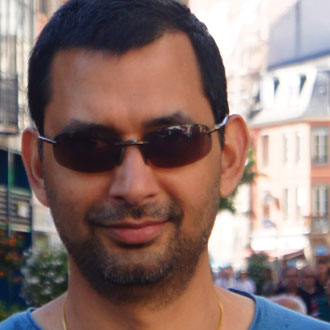After 13 years in the NHS, having reached the pinnacle of my career I’m emigrating to Australia. In fact, I am writing from the stopover lounge of an airport in Singapore.
And it’s not just me: NHS GPs are leaving in droves. I know of five GPs, all fairly young (under 45), leaving for Australia from Coventry this month. Almost all of the psychiatry consultants have emigrated to Canada from the local Trust and many GPs are on the verge of retiring. The GP in Birmingham who did the medical for my Visa is retiring from the NHS aged 49 to go into private practice. The loss of expertise from the NHS is stupendous and unprecedented.
The NHS has over a million employees and counts amongst its members some of the most highly-regarded professionals ranging from paramedics to nurses to GPs. GPs regularly come top of the polls as a trustworthy profession.
Yet, not a single day goes by when the NHS is not denigrated by the press in an attack which often seems to be orchestrated by your office. Staff morale is at an all-time low. There is a looming workforce crisis in district nursing, A&E doctors, social workers, and GPs. These issues are routinely glossed over and anybody fighting for better working conditions is painted as a money-grabbing no-gooder.
Fair pay for hard work
The NHS, like our armed forces, is staffed by people you could never pay enough: people working 12-14 hours a day in highly stressful situations such as A&E departments, often without adequate breaks and to the detriment of their own health. This has become the norm across the NHS.
And these people want some respect. They want to work in an environment that’s supportive and appreciative. They want an end to constant top-down restructuring and clinically irrelevant targets. They don’t want to go to work every day feeling like they are getting ready to do battle and they want the health minister to tell the public the truth about how much pressure the NHS is under. But the Department of Health has repeatedly failed these people by cutting services, and leaving frontline staff to face the criticism of the patients and the press. Why? I came to this country in 2001. I trained as a doctor in India and worked in the Middle East before coming to the UK. I was neither an asylum seeker nor an economic migrant but an intellectual migrant.
The NHS was a breath of fresh air. My first job interview consisted of a panel comprising an Irish consultant, an Egyptian and a Brit with a British Asian medical staffing representative. During my first six-month post I was not only encouraged to develop myself further but given leave and paid to go on courses which I could only dream of affording in India or the Middle East.
This nurturing of talent and knowledge continued and within three years of coming here, I was associate tutor of the Royal College of Physicians whilst doing a medical rotation and until recently I was a GP appraiser, an elected member of the local CCG board, and a partner.
Over the last 13 years I’ve lived, worked and travelled all over the UK and have visited most places from John O’ Groats to Land’s End. I have used no public funds and have broken no laws, apart from a couple of traffic offences.
I was attracted to the NHS because I believe everyone should have access to health care that is free at point of care and more over is the same high standard for everyone regardless of whether they can pay.
The NHS does this better than anyone else in the world. No fee-based system, whether paid for by patient or insurance, can match it. In the UK I have been able to practise evidence-based medicine and never had to think about whether my patient could pay.
There is an old saying: do a job you love and you never have to work a day for the rest of your life. GPs do this job because they love it. The changes ushered by the Department of Health since Lansley’s white paper are crushing GPs –people like me who seemingly ‘have it all’.
In the end, I’d like to ask Jeremy Hunt three questions: why is he letting all these million-pound assets like us to leave the NHS? Can Mr Hunt reassure UK citizens that the NHS is in a fit state to tackle the looming problems which our ageing population faces? And, despite all the cutbacks, are the needs of the populace safeguarded?
I’m an ardent admirer and supporter of the NHS and, for the sake of the millions of people rely on it, as well as those who work in it, I hope that you can answer both those questions with ‘yes’.
Dr Gaurav Tewary is a GP from Coventry who has just moved to Australia.
Pulse October survey
Take our July 2025 survey to potentially win £1.000 worth of tokens














